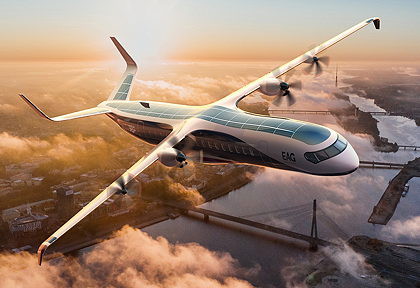UK JV will develop propulsion systems for electric aircraft

A joint venture is being set up in the UK to develop and commercialise kW-MW scale electric propulsion systems – both conventional and superconducting – for both aerospace and non-aerospace applications. The venture, called Hydrogen Hybrid Electric Propulsion Systems (H2EPS), is being formed by the University of Nottingham (UoN) and the Electric Aviation Group (EAG), which is designing “the world’s first true-zero (zero carbon and NOx emissions) 90-seater hydrogen hybrid-electric regional aircraft” which, it hopes, will enter service by 2030.
The joint venture will focus initially on developing and commercialising 2MW-class electric propulsion systems for hybrid, all-electric and hydrogen-electric aircraft applications, with the aim of fast-tracking the decarbonisation of the aviation sector.
H2EPS will combine the capabilities and intellectual property of EAG and the University of Nottingham to develop and commercialise electric propulsion systems products and services. UoN has world-leading capabilities in power electronics and electrical machines and has already demonstrated aircraft propulsion drive systems rated at up to 4MW/5MVA.
“EAG is extremely pleased to enter into this partnership,” says its founder and CEO, Kamran Iqbal. “We need to develop technologies and aircraft platforms at the right size and scale to make a meaningful impact to the environment. The JV’s focus on 2MW-class electric propulsion system development is a step in the right direction which will contribute substantially to solve the decarbonisation and mass air transportation challenges simultaneously.”
“The University of Nottingham has world-leading expertise in electric propulsion systems development,” adds Professor Dame Jessica Corner, UoN’s pro-vice-chancellor for research and knowledge exchange. “This partnership is a great opportunity for UoN to deliver long-standing impact that demonstrates our commitment to developing technologies for environmental sustainability by developing and commercialising products with the potential of creating wider societal benefits, decarbonising the aviation sector and creating world-leading electric propulsion capabilities in the UK.”

EAG has recently secured investments from Falko and CityJet, and signed a collaboration agreement with Atkins to support the development of future flight technologies.
Electric Aviation Group: Twitter LinkedIn
University of Nottingham: Twitter LinkedIn Facebook





